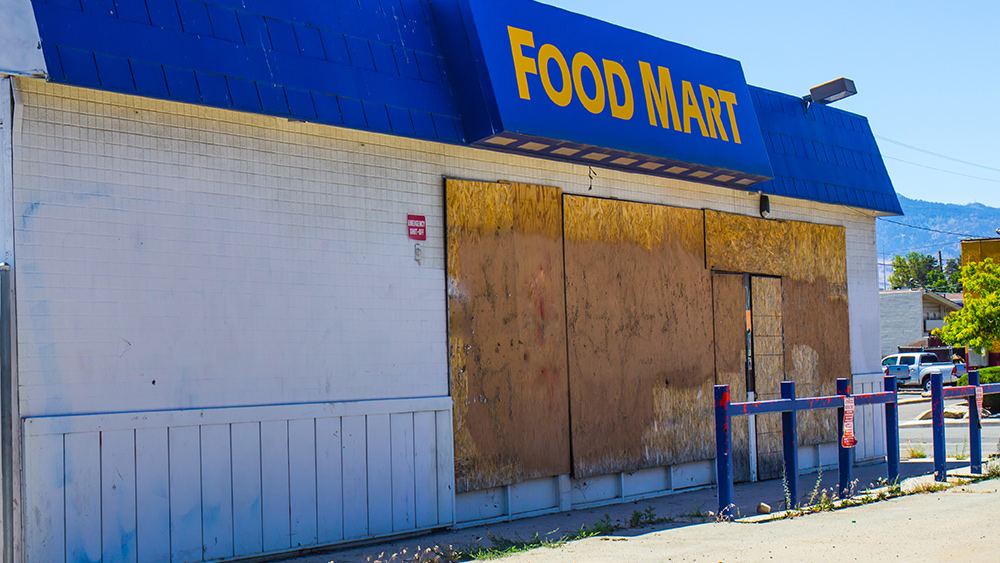
Kroger, one of America's largest grocery chains, is shutting down more than 60 underperforming stores nationwide in a sweeping cost-cutting move.
The closures affecting Kroger, Harris Teeter and Pick 'n Save locations mark one of the most significant retractions in the company's history. Stores in Texas, Wisconsin, Georgia, Illinois and several other states will vanish by 2026, with some closing as early as this summer.
The decision, announced during Kroger's first-quarter earnings report, comes as the company faces minor sales declines. However, the company insists it will reinvest savings into improving customer experience without layoffs.
Grocery chains nationwide are grappling with inflation, shifting consumer habits and fierce competition from discount retailers like Walmart and Aldi. Kroger's closures reflect a broader trend in corporate America: Businesses are trimming excess to survive in an uncertain economy. This isn't just about lost stores – it's about the survival tactics of an industry under siege. (Related: Kroger shoppers reporting "a lot of empty shelves" across supermarket chain locations.)
Kroger operates nearly 2,800 stores, meaning these 60 closures represent roughly two percent of its footprint. While not catastrophic, the move signals a strategic retreat from weaker markets.
The first confirmed closures included a location in Dickinson, Texas – with more set to follow between July and October. Wisconsin's affected stores remain unannounced, leaving employees and customers in limbo.
Kroger's first-quarter earnings revealed a slight dip. Sales fell from $45.3 billion to $45.1 billion year-over-year, while net income dropped from $962 million to $866 million.
Interim CEO Ron Sargent called the results "solid," crediting pharmacy, e-commerce and fresh food sales for keeping the company afloat. Yet the numbers suggest stagnation, forcing Kroger to shed dead weight.
No layoffs, but what's next for workers?
Kroger insists no jobs will be lost, as employees at closing stores will be offered transfers. But for workers in rural or underserved areas, a nearby store might mean longer commutes or upheaval. For towns losing their only grocery outlet, this is cold comfort.
The United Food and Commercial Workers Union, representing many Kroger employees, has yet to raise major objections. But the human cost of corporate restructuring remains a quiet concern.
Kroger claims savings from closures will fund customer experience upgrades. The company plans to spend up to $3.8 billion this year on new stores and renovations, targeting high-growth markets.
This isn't Kroger's first downsizing. In 2018, it closed 40 stores after acquiring Harris Teeter. In 2021, it axed underperforming locations amid pandemic strains.
Each time, the company framed cuts as necessary for long-term health. But with inflation squeezing household budgets, customers may see this as another sign of corporate America prioritizing profits over people.
Kroger's raised sales forecast hinges on fresh foods, private-label brands and digital services – areas where it competes with Amazon and Walmart. The closure of Kroger Ship, its direct-to-consumer delivery service, suggests even digital strategies face ruthless evaluation.
While Kroger refuses to release a full closure list, local reports and union disclosures confirm some casualties. Regardless, the message is clear: growth for some, abandonment for others. Whether this gamble pays off depends on whether reinvestment actually improves service or just shareholder returns.
Visit Collapse.news for more similar stories.
Watch this video about drugstore chain CVS closing 271 stores in 2025.
This video is from the NewsPlusGlobe channel on Brighteon.com.
More related stories:
Dollar Tree announces plans to close down 1,000 stores due to INFLATION and RETAIL THEFT.
Walgreens to close roughly 1,200 UNDERPERFORMING stores.
Rite Aid to close up to 500 stores in BANKRUPTCY proposal.
Sources include:
DailyMail.co.uk
MSN.com
USAToday.com
Brighteon.com
Source link

